During the past two years women have broken all the barriers and have grabbed the opportunities that have set them on an equal footing with men…reports Asian Lite News
After the scrapping of J&K’s special status, the government has worked hard towards empowering women in the Union Territory.
During the past 30 months as many as 4.5 lakh women have been made financially independent through Self-Help Groups initiative. For the first time in the past 70-years women have been given 15 per cent reservation in Jammu and Kashmir Police in non-gazetted cadres.
To enhance the entrepreneurial skills of women, training and financial assistance is being provided to them through schemes like Hausla, Umeed, Saath, DigipaySakhi, Krishi and Sakhi.
Till August 5, 2019 — when the Centre announced its decision to abrogate Article 370, temporary provision of the Indian constitution, and divided it into two Union Territories — women empowerment existed only on papers. The erstwhile political regimes made tall claims about women being the priority but their assertions didn’t go beyond lip service. The schemes that were designed to help women gathered dust in the official files. In a nutshell women empowerment didn’t figure in the list of priorities of the former rulers.
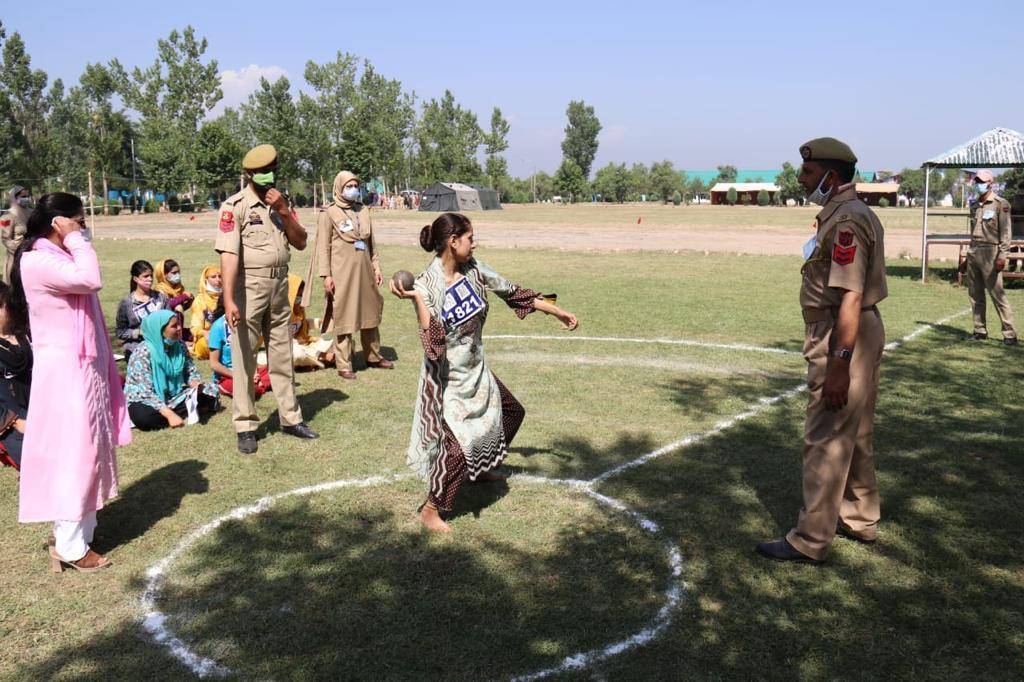
During the past two years women have broken all the barriers and have grabbed the opportunities that have set them on an equal footing with men. Since 1947 inequality between women and men was widely apparent in Jammu and Kashmir. But during the past thirty months the lives of women and girls have improved in many respects. In J&K more girls have started going to school, getting better jobs, and acquiring legal rights and protections.
ALSO READ: Kashmir handicraft all set to conquer European markets
The politicians who ruled J&K never concentrated on closing the gender gaps by devising firm policies. It seems they were unaware about the fact that greater gender inequality affects the entire generation. Abrogation of Article 370 has ended gender inequality in ‘Naya J&K’.
Pak sponsored insurgency hit women hard
Since the day Pakistan sponsored insurgency broke out in Jammu and Kashmir, women were the worst sufferers. In the heydays of militancy, ultras issued diktats to the women to stay away from work places, schools and colleges. Many women were attacked with acid to enforce the rule of wearing a veil. No stone was left unturned to turn women into second fiddles.
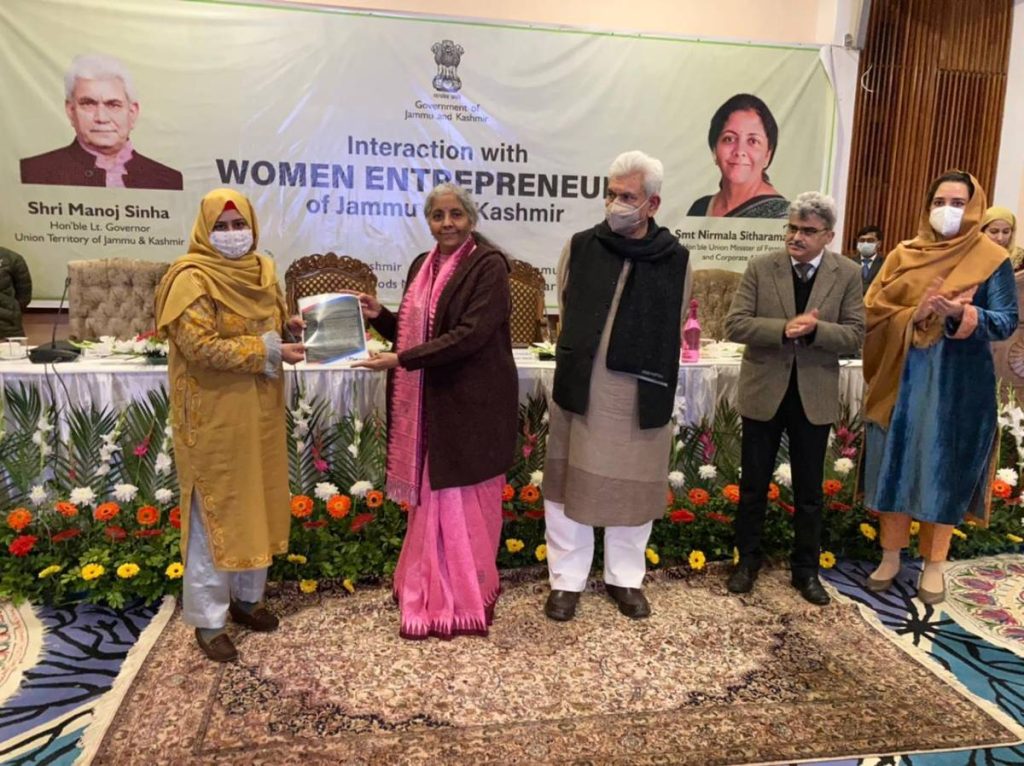
After the situation improved and politicians returned to power in Jammu and Kashmir in 1996 they made big announcements about providing equal status to women in Kashmir but they couldn’t do much. The fairer sex continued to suffer as no sincere attempt was put in to make it a part of the system.
Women in Jammu and Kashmir refused to succumb despite facing a difficult situation. They stood against all the odds and didn’t relent. But the former regimes failed them as nothing was done to provide women with reservation in any sector. Nor were any special schemes started to help them become entrepreneurs.
However, the Centre’s August 5, 2019 decision to merge J&K completely into the Union of India has opened a new world for the women in the Union Territory. They are being provided with all the possible assistance to live their lives independently.
After Aug 5, 2019, women outshine men
In September 2021, J&K Lieutenant Governor Manoj Sinha, unveiled ‘Saath’ to promote women entrepreneurship in rural areas, the scheme designed by Jammu & Kashmir Rural Livelihood Mission aims at triggering and upscaling women-driven endeavours in business, industry, and agriculture. Under the programme, the government aims to help over four lakh women. LG Sinha in the recent months has launched dozens of schemes like ‘Saath’ for women empowerment. These initiatives have provided them with an opportunity to stand with men. Past two years have transformed young women in J&K into inventors, innovators, sportspersons, artists, bankers and what not. The government has provided them with all the possible support to stand on their own feet. They are no more dependent on them and are outshining men in every field.
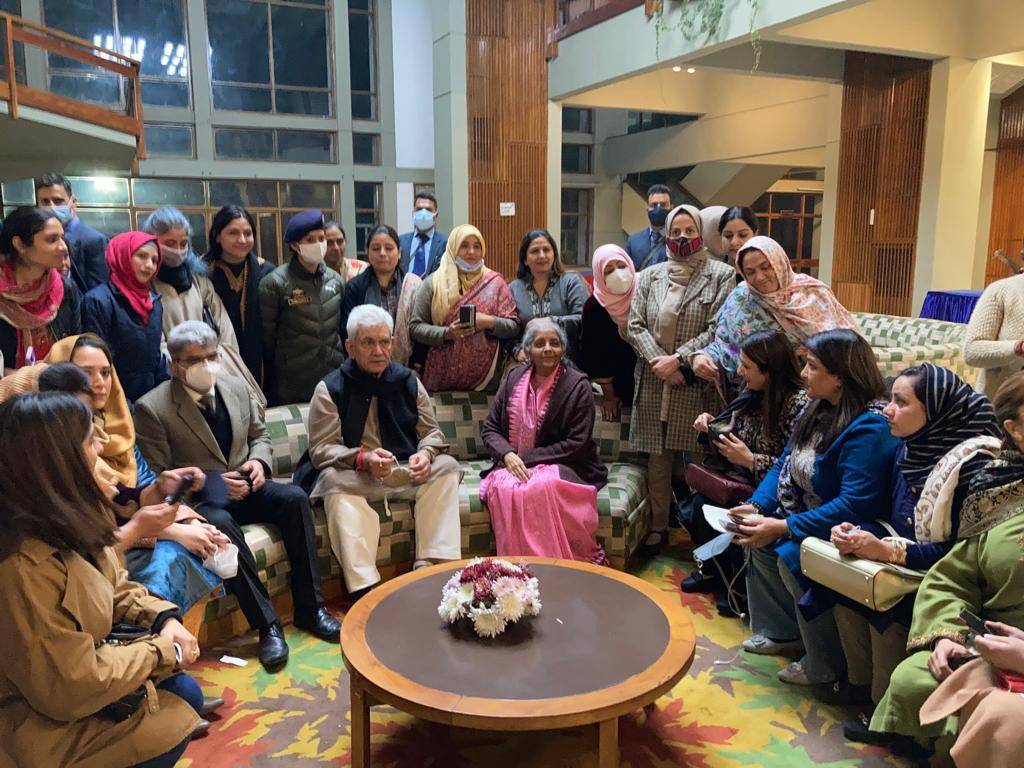
According to official data, more than 28,000 self-help groups are operating in J&K and many more are in the offing. Success stories of J&K women are inspiring the females across the world to follow their footsteps, and many J&K women have become role models. Sectors like animal husbandry, sheep, farming, bakery, handicrafts, and handlooms etc. that were considered to be the exclusive domain of men have opened up for women and they are doing a wonderful job.
Kashmir-based politicians caught in quandary
The politicians, who ruled J&K for seven decades, need to sit back and introspect how J&K has changed in two years? They could have done similar things, what the Central and the UT governments are doing at present. What stopped them from channelizing the energies of women in a positive way? Was it the pressure exerted by Pakistan and its stooges in Kashmir? Or they just wanted the things to remain in disarray so that they could reap the benefits of power under the garb of conflict?
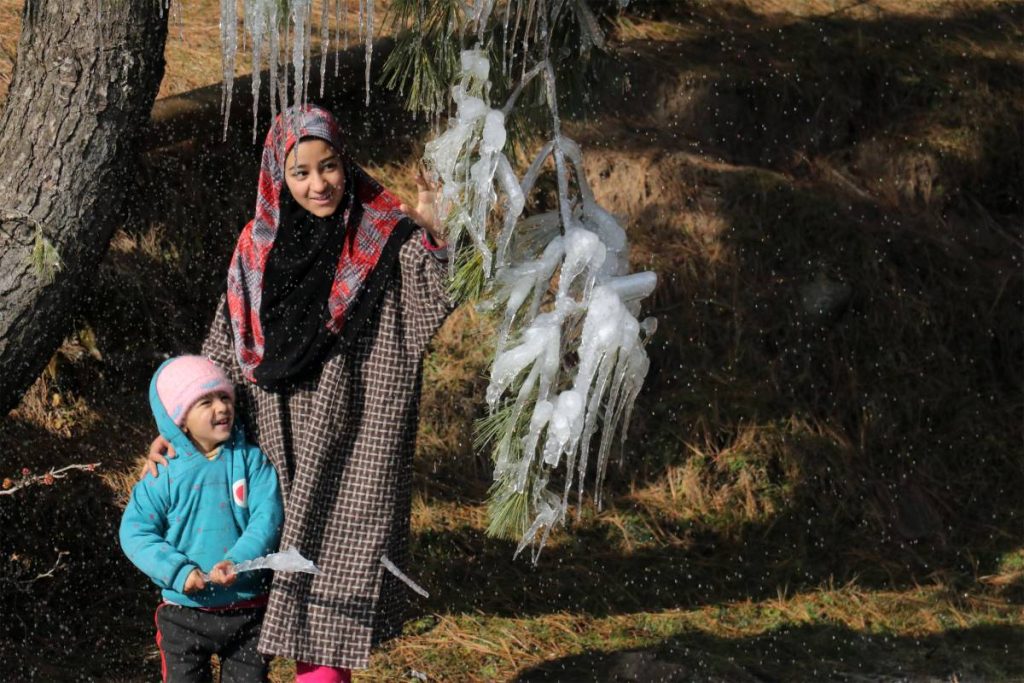
When Narendra Modi as BJP’s Prime Ministerial candidate addressed an election rally in Jammu prior to 2014 Parliamentary elections and termed the Article 370 as debatable, then J&K chief minister, Omar Abdullah, threw an open challenge to the entire Bharatiya Janata Party leadership to prove that special status was the biggest impediment in the development of the Himalayan region.
ALSO READ: Mayday from valleys of Pak occupied Kashmir
Most Kashmir based politicians were on the same page vis-a-vis so-called special status of Jammu and Kashmir as more than anyone it protected their “right to rule and enjoy privileges”.
As on date leaders like former J&K Chief Minister MehboobaMufti�who had started much hyped special ladies bus service as a symbol of women empowerment during her tenure�have been left with no argument to claim that Article 370 benefitted the J&K people.
Empowerment of women has proven beyond doubt that the so-called special status kept them deprived of the benefits that could have reached them had any leader prior to Prime Minister Modi shown the courage to abrogate J&K’s so-called special status tag.
J&K women are no longer sufferers; they are emerging as leaders, torchbearers and key players in every field. They are not confined within their homes anymore. Their trauma and sufferings have ended. They are no longer being treated as commodities in ‘Naya J&K’. They are on their way to become self reliant and independent.
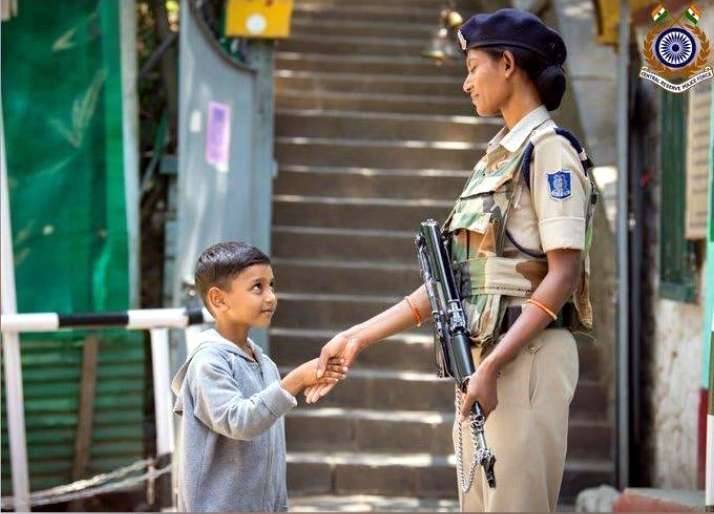
Leave a Reply